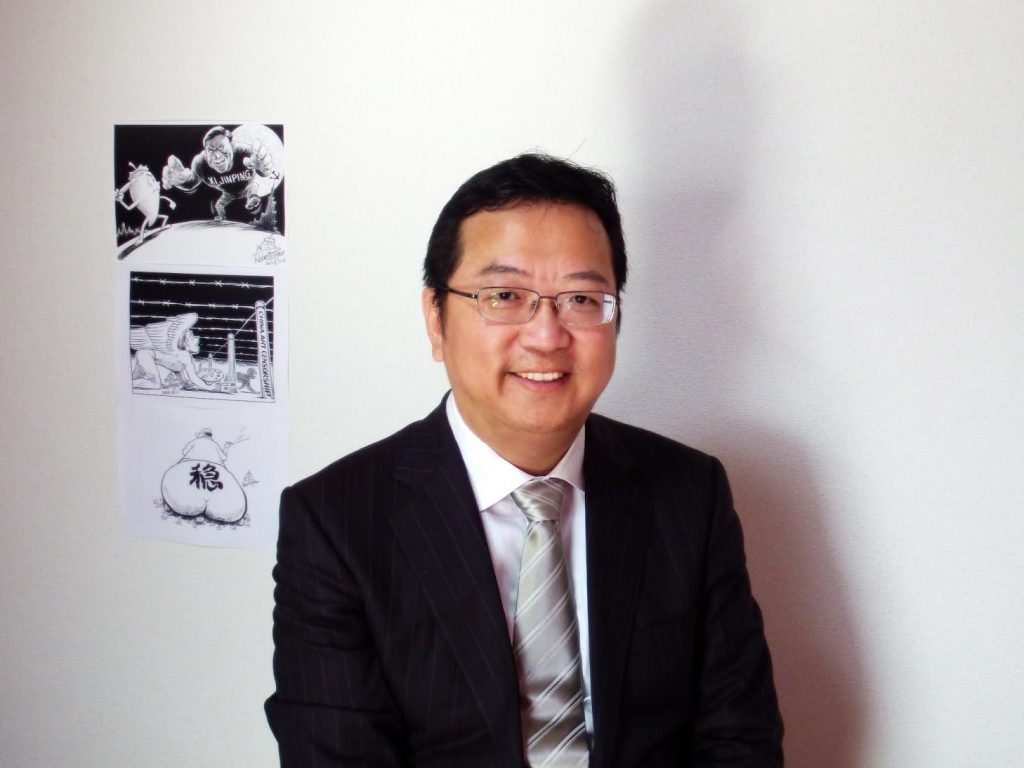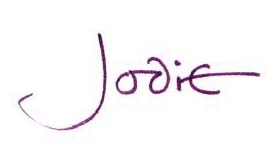13 Jun 2024 | Iran, News and features, Statements
We are dismayed to learn that the Iranian activist, artist, and cartoonist Atena Farghadani has been sentenced to a total of six years in prison; five years for “insulting the sacred” and one year for “propaganda against the State”. This sentence was handed down by the Islamic Republic of Iran’s Revolutionary Court on Monday, June 10, as confirmed by lawyer Mohammad Moghimi via social media. The maximum penalties are indicative of the Iranian regime’s long-standing determination to persecute and silence this courageous rights defender.
Atena Farghadani had been detained since 13 April 2024 after attempting to display a drawing in a public space, not far from the presidential palace in Tehran. Over the past decade, she has been regularly monitored and harassed due to her art and activities opposing the repression of rights in Iran, especially those of women and children.
Previously jailed in 2014-16, and again for a short period last summer, Atena Farghadani risks coming to harm within the penal system. In 2023 she alleged an attempted poisoning. At the time of her arrest this year she reported that she suffered severe injuries from Iranian Revolutionary Guard Corps (IRGC) personnel.
Artwork by Atena Farghadani was recently exhibited in Norway, at the sixteenth Oslo Forum for Freedom (OFF) organized by the Human Rights Foundation, dedicated to “reclaiming democracy”. In the presence of human rights defenders from around the world, Atena Farghadani’s representative Mohammad Moghimi ensured that her voice was heard, a voice that is both brave and righteous, and is targeted because she dares to defy oppression and injustice in her country.
Our organizations call for her immediate release and that she be returned to her family unharmed.
Signatories:
Africartoons
Artists at Risk Connection (ARC)
Association of Canadian Cartoonists
Cartooning for Peace
Cartoon Movement
Cartoonists Rights
Committee to Protect Journalists (CPJ)
Forum for Humor and the Law
Freedom Cartoonists Foundation
Freemuse
Index on Censorship
Professional Cartoonists’ Organisation
4 Oct 2019 | News and features
[vc_row][vc_column][vc_single_image image=”110170″ img_size=”full” add_caption=”yes”][vc_column_text]“Every Hong Kong protester is my biggest inspiration. You guys think I am brave? Those young kids, 16 and 17 years old, are risking their lives at every protest. They are the people who inspire me, they are the people who motivate me to do more work to share their story with you guys.” These words, from the Chinese dissident artist known as Badiucao, were met with rapturous applause from the audience at the private screening of the new documentary about his life, China’s Artful Dissident.
The invitation-only screening was held at the Tate Exchange and hosted by Index On Censorship. Badiucao, who until recently had kept his identity a secret in an attempt to protect himself and his family from the Chinese government, was present, alongside the filmmaker Danny Ben-Moshe.
The film cannot fail to move and inspire. It documents Badiucao’s move into political activism after watching a documentary about the Tiananmen Square massacre, the details and death toll of which the Chinese government has done its best to suppress, and his move to Australia in 2009 to escape the censorship and artistic oppression in China.
The last part of the documentary shows the lead up to an exhibition of Badiucao’s work in Hong Kong. It ends on a heartbreaking note when the exhibition is cancelled following threats to Badiucao’s family in China. This was the reason Badiucao revealed his identity; it became clear that the Chinese government had already discovered it.
The screening was followed by a Q&A with Badiucao and Ben-Moshe, chaired by Martin Rowson, the political cartoonist and regular contributor to Index on Censorship magazine. Responding to a question about his safety in Australia, Badiucao described it as “a problematic country” and that he may have been naive to think he could entirely escape the influence of Beijing.
“Australia can be an example of how China is projecting its threat all over the world,” he said.
Addressing current counter-protests from the Chinese diaspora specifically, Badiucao said:
“You have to remember that when we grow up in China, we grow up with an entire machine of propaganda, it will take a very long time for people to walk out of this shadow.”
He expressed concern that people may view the Chinese population, the counter-protesters in particular, as brainwashed, aggressive nationalists who don’t deserve democracy.
“As a consequence, the far right will rise, xenophobia will rise, discrimination will rise, racism against China will rise. Ultimately this solution will not solve the problem, it just pushes the Chinese back to Beijing.”
Badiucao’s career goal, he explained, is to destroy censorship using art. He said: “I’m very proud and honoured that my work is recognised and used by the Hong Kong protesters.” He also said that his art is a way to record history to act as counterpoint to the Chinese government, who rewrite history.
Badiucao is now living in Australia and having revealed his identity, he is followed, sees strange cars outside his home and receives daily threats via social media. He made light of those that daily detract him.
“We call them 50 cent, because when they send me a death threat, they get 50 cent deposited into their bank accounts,” he said of China’s infamous trolls.
All of this is the price he pays for simply expressing himself through his art.
Click here to read more about Badiucao and to see an exclusive cartoon of his in the new magazine[/vc_column_text][/vc_column][/vc_row][vc_row][vc_column][/vc_column][/vc_row]
15 Dec 2017 | Campaigns -- Featured, China, Fellowship, Fellowship 2017, Statements, United States
[vc_row][vc_column][vc_column_text]

Rebel Pepper, Chinese artist, is the 2017 Freedom of Expression Awards Arts Fellow.
“China has little to no freedom of speech and its people are constantly living in fear.”
— Rebel Pepper (Wang Liming), Cartoonist, 2017 Arts Fellow
Silence is the oppressor’s friend. Targeting those who challenge corruption and injustice – like this year’s Freedom of Expression Awards Fellow Rebel Pepper – is the favoured tool of those who seek to crush dissent. We cannot let the bullies win.
With your help, each year we are able to support writers, journalists and artists at the free speech front line – wherever they are in the world – through Index Fellowships. These remarkable individuals risk their freedom, their families and even their lives to speak out against injustice, censorship and threats to free expression.
I am writing now to ask you to support the Index Fellows. Your donation provides the support and recognition these outstanding individuals need to ensure their voices are heard despite the restrictions under which they are forced to live and work.
 Your support will help winners like Rebel Pepper, censored by Chinese authorities for his cartoons lampooning the government. Forced into exile, he’s now working for Radio Free Asia and living in the USA with his wife and newborn child, and looking for opportunities to showcase his work to a wider audience.
Your support will help winners like Rebel Pepper, censored by Chinese authorities for his cartoons lampooning the government. Forced into exile, he’s now working for Radio Free Asia and living in the USA with his wife and newborn child, and looking for opportunities to showcase his work to a wider audience.
Working with Index, Rebel Pepper also hopes to reach more of his original fans inside mainland China from whom he’s been cut off for several years. “There are a lot of terrible things recently” says Rebel Pepper, “the CCP’s control of society is becoming more and more severe, people get less and less chance of real news from outside, and vice versa.” Nonetheless, “this award give me energy to keep walking on the cartoon creative road”.
I hope you will consider showing your support for free speech and the Index Fellows. A gift of £500 would support professional psychological assistance for a fellow; a gift of £100 helps them travel to speak at more public events. A gift of £50 helps us to be available for them 24/7. You can make your donation online now.
Please give what you can in the fight against censorship in 2018. Make your voice heard so that others can do the same.
Thank you for your support.

Jodie Ginsberg, CEO
P.S. The 2018 Index on Censorship awards will be held in April. To find out more about the awards including previous winners, please visit: https://www.indexoncensorship.org/awards
Index on Censorship is an international charity that promotes and defends the right to free expression. We publish the work of censored writers, journalists and artists, and monitor, and campaign against, censorship worldwide.[/vc_column_text][/vc_column][/vc_row][vc_row][vc_column][vc_basic_grid post_type=”post” max_items=”12″ style=”load-more” items_per_page=”4″ element_width=”6″ grid_id=”vc_gid:1513332894550-8daa2ef8-543f-7″ taxonomies=”9021″][/vc_column][/vc_row]
2 Apr 2017 | Magazine, Magazine Contents, Volume 46.01 Spring 2017
[vc_row][vc_column][vc_custom_heading text=”Contributors include Richard Sambrook, Dominic Grieve, Roger Law, Karim Miské, Mark Frary and Canan Coşkun”][vc_row_inner][vc_column_inner width=”1/2″][vc_column_text]
The spring issue of Index on Censorship magazine looks at how pressures on free speech are currently coming from many different angles, not just one. Richard Sambrook, former director of global news at the BBC, shows how journalists are in a bind, caught between what advertisers want and what readers want. Also looking at journalists, Duncan Tucker casts his eye on the grave situation in Mexico, where getting to the truth involves working against the government, violent cartels and even coworkers.
[/vc_column_text][/vc_column_inner][vc_column_inner width=”1/2″][vc_single_image image=”88802″ img_size=”full”][/vc_column_inner][/vc_row_inner][vc_column_text]
Meanwhile, in the Maldives Zaheena Rasheed shows how a mix of forces conspire against those who want to write anything beyond the usual tourist sale pitch.
But the squeezes on free expression don’t just concern journalists. Annemarie Luck reports from Japan, where penis festivals are popular, but women struggle to discuss their own bodies. Can they find a voice through art and manga? For musician Smockey from Burkina Faso, art should indeed be a way to confront truth and yet that’s not always the case. Expectations run high for him to not be “too political” in his lyrics.
Universities, normally the cradle of free expression, aren’t faring too well either, as two articles show. Jan Fox reports from the USA, where bias response teams are becoming a staple of US collegiate life. In South Africa Fees Must Fall has created a divide between right and left, writes Natasha Joseph, with neither side talking to each other and those in the middle being silenced altogether.
Outside of our special report, Roger Law, creator of the iconic TV satire Spitting Image, talks about the great fun he had with the series back in the day and questions whether the show would be able to air today. Alfonso Lázaro de la Fuente might say no. He was one of the Spanish puppeteers arrested last year for a show that referenced Basque-separatist organisation ETA. In an Index exclusive, he explains what the charges have meant for his personal and professional life.
Want to know how to spot fake news? Then read Reel-time news in which Index’s team of experienced global reporters offer tips on how to spot fake news from a mile/screen away. And don’t miss Martin Rowson‘s fake o’clock news, a hilarious – and sinister – take on what a future of alternative facts would look like.
Index also publish an interview with Turkish journalist Canan Coşkun, whose coworkers are currently in jail, and a pair of writers discuss the situation of free speech in Poland, which is tumbling down global charts following the election of the Law and Justice party. And in the UK, former attorney general Dominic Grieve reveals that MPs are avoiding hard talk in parliament.
Finally, the culture section includes a short story from award-winning French writer Karim Miské and original work from Vyacheslav Huk, a Crimean novelist who is unable to publish work in his mother tongue.
[/vc_column_text][/vc_column][/vc_row][vc_row][vc_column][vc_custom_heading text=”SPECIAL REPORT: THE BIG SQUEEZE” css=”.vc_custom_1481731933773{margin-right: 0px !important;margin-left: 0px !important;border-bottom-width: 1px !important;padding-top: 15px !important;padding-bottom: 15px !important;border-bottom-color: #455560 !important;border-bottom-style: solid !important;}”][vc_column_text]
The Big Squeeze: Freedom of speech under pressure
Fact-filled future? by Rachael Jolley: Journalists need to step up, and produce more detailed news coverage. The public needs it
Between a rock and a hard place, by Duncan Tucker: Mexico’s journalists face threats from cartels, the government and each other
Reality rapped, by Smockey: An award-winning musician from Burkina Faso explains why he won’t water down his lyrics to avoid rocking the boat, despite pressure to do so
Talking a tightrope, by
Kaya Genç: Despite the crackdown in Turkey, the post-Gezi spirit still survives among the determined
Taking the bait, by Richard Sambrook: The quest for instant gratification online is seriously compromising news reporting
Dangerous minds, by Natasha Joseph: Rather than creating an alliance, Fees Must Fall is limiting free speech at South Africa’s universities, leaving some early supporters disheartened
Japan’s Madonna complex, by Annemarie Luck: Japan’s contradictory attitudes include highly sexualised images of women and women not being allowed to talk about sex-related subjects
Squeezed in the closet, by Hannah Leung: Get married and be quiet are the messages China’s LGBT community is given
Degrees of separation, by Jan Fox: The author investigates units appearing on US campuses suggesting students should report lecturers who they feel are biased
Dying to tell a story, by Sadaf Saaz: The list of what Bangladesh writers cannot talk about is getting longer, but that isn’t stopping some from writing
Trouble in paradise, by Zaheena Rasheed: Behind the image of palm-lined beaches is a side of the Maldives the government doesn’t want you to see
Your cover is shown, by Mark Frary: Tech giants and governments are out to get your data. Soon it might be impossible to remain anonymous
Stripsearch cartoon, by Martin Rowson: Tune in to the fake o’clock news
Composing battle lines, by Steven Borowiec: Why have South Korean pop stars found themselves caught in crossfire between their country and China?
[/vc_column_text][/vc_column][/vc_row][vc_row][vc_column][vc_custom_heading text=”IN FOCUS” css=”.vc_custom_1481731813613{margin-right: 0px !important;margin-left: 0px !important;border-bottom-width: 1px !important;padding-top: 15px !important;padding-bottom: 15px !important;border-bottom-color: #455560 !important;border-bottom-style: solid !important;}”][vc_column_text]
We have no time for fear, by Canan Coşkun: A Turkish journalist on the perils of reporting in her country when fellow reporters are imprisoned
Reel-time news, by Natasha Joseph, Kaya Genç, Jemimah Steinfeld, Duncan Tucker, Abraham T Zere, Raymond Joseph: As “fake news” dominates headlines, Index’s global team of experienced journalists offers tips on how to spot falsehoods before you click and share
Singing from the same hymn sheet, by Suhrith Parthasarathy: Rising Indian nationalism is creating a repressive state where non-conformity is deemed unpatriotic
Poland: Special Focus, by Wojciech Przybylski, Marcin Król: Poland has gone from free speech hero to villain almost overnight. Two writers discuss the shift and why history is being rewritten
Shooting from the hip, by Irene Caselli: A new mayor in a Mexican border city believes he will make it less dangerous for journalists
Silence in the house, by Dominic Grieve: The former UK attorney general says MPs are shying away from tough topics in parliament
Puppet masters, by Roger Law: The creator of iconic TV satire Spitting Image on whether we still have our sense of humour
Drawing the line, by John Power: Australia is debating free speech, one cartoon at a time. Cartoonist Bill Leak interviewed just before he died
Puppet state, by Alfonso Lázaro de la Fuente: A Spanish puppeteer, arrested after terrorism charges related to a show, discusses the impact on his life
[/vc_column_text][/vc_column][/vc_row][vc_row][vc_column][vc_custom_heading text=”CULTURE” css=”.vc_custom_1481731777861{margin-right: 0px !important;margin-left: 0px !important;border-bottom-width: 1px !important;padding-top: 15px !important;padding-bottom: 15px !important;border-bottom-color: #455560 !important;border-bottom-style: solid !important;}”][vc_column_text]
Novel take on terror, by
Karim Miské: The award-winning crime writer on why fiction and reality overlap. Plus his short story featuring a future where tech rules supreme. Interview by Sally Gimson
The war of the words, by Amira Hanafi: Translated extracts from an American-Egyptian writer’s project to capture the shifting linguistic landscape in Egypt since 2011. Interview by Sally Gimson
Crimean closedown, by Vyacheslav Huk: The Crimean novelist on being unable to publish in his mother tongue and a story of the narrator’s memories. Introduced and translated by Steve Komarnyckyj
[/vc_column_text][/vc_column][/vc_row][vc_row][vc_column][vc_custom_heading text=”COLUMNS” css=”.vc_custom_1481732124093{margin-right: 0px !important;margin-left: 0px !important;border-bottom-width: 1px !important;padding-top: 15px !important;padding-bottom: 15px !important;border-bottom-color: #455560 !important;border-bottom-style: solid !important;}”][vc_column_text]
Index around the world, by
Kieran Etoria-King: What to look out for at Index’s Freedom of Expression Awards 2017, alongside news of other projects that Index has been working on in the last few months
[/vc_column_text][/vc_column][/vc_row][vc_row][vc_column][vc_custom_heading text=”END NOTE” css=”.vc_custom_1481880278935{margin-right: 0px !important;margin-left: 0px !important;border-bottom-width: 1px !important;padding-top: 15px !important;padding-bottom: 15px !important;border-bottom-color: #455560 !important;border-bottom-style: solid !important;}”][vc_column_text]
Getting print out, by Jemimah Steinfeld: Self-publishing may be a new solution to censorship in China and other countries
[/vc_column_text][/vc_column][/vc_row][vc_row][vc_column][vc_custom_heading text=”SUBSCRIBE” css=”.vc_custom_1481736449684{margin-right: 0px !important;margin-left: 0px !important;border-bottom-width: 1px !important;padding-bottom: 15px !important;border-bottom-color: #455560 !important;border-bottom-style: solid !important;}”][vc_column_text]Index on Censorship magazine was started in 1972 and remains the only global magazine dedicated to free expression. Past contributors include Samuel Beckett, Gabriel García Marquéz, Nadine Gordimer, Arthur Miller, Salman Rushdie, Margaret Atwood, and many more.[/vc_column_text][vc_row_inner][vc_column_inner width=”1/2″][vc_single_image image=”76572″ img_size=”full”][/vc_column_inner][vc_column_inner width=”1/2″][vc_column_text]In print or online. Order a print edition here or take out a digital subscription via Exact Editions.
Copies are also available at the BFI, the Serpentine Gallery, MagCulture, (London), News from Nowhere (Liverpool), Home (Manchester), Calton Books (Glasgow) and on Amazon. Each magazine sale helps Index on Censorship continue its fight for free expression worldwide.
 SUBSCRIBE NOW[/vc_column_text][/vc_column_inner][/vc_row_inner][/vc_column][/vc_row]
SUBSCRIBE NOW[/vc_column_text][/vc_column_inner][/vc_row_inner][/vc_column][/vc_row]


 Your support will help winners like Rebel Pepper, censored by Chinese authorities for his cartoons lampooning the government. Forced into exile, he’s now working for Radio Free Asia and living in the USA with his wife and newborn child, and looking for opportunities to showcase his work to a wider audience.
Your support will help winners like Rebel Pepper, censored by Chinese authorities for his cartoons lampooning the government. Forced into exile, he’s now working for Radio Free Asia and living in the USA with his wife and newborn child, and looking for opportunities to showcase his work to a wider audience. 